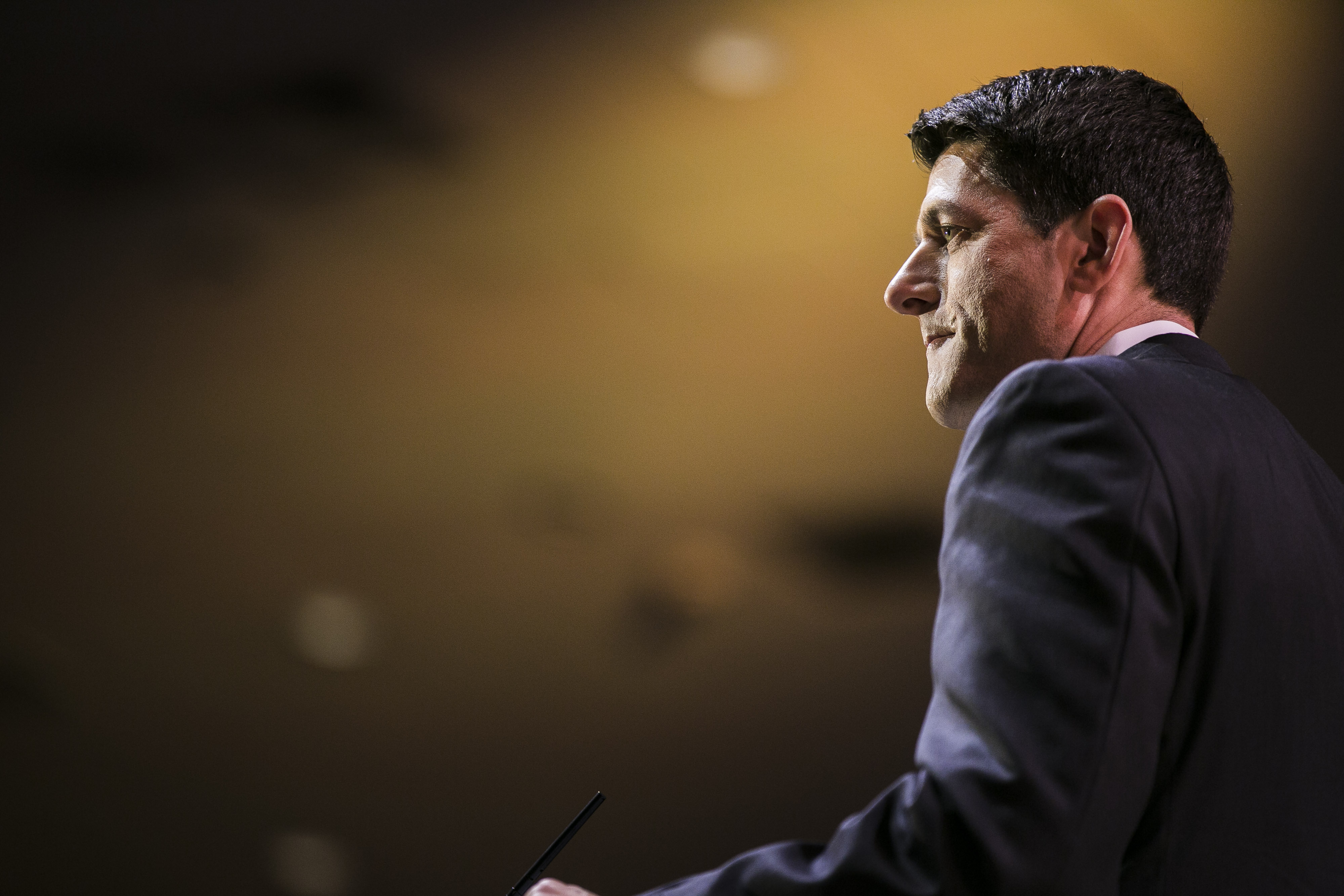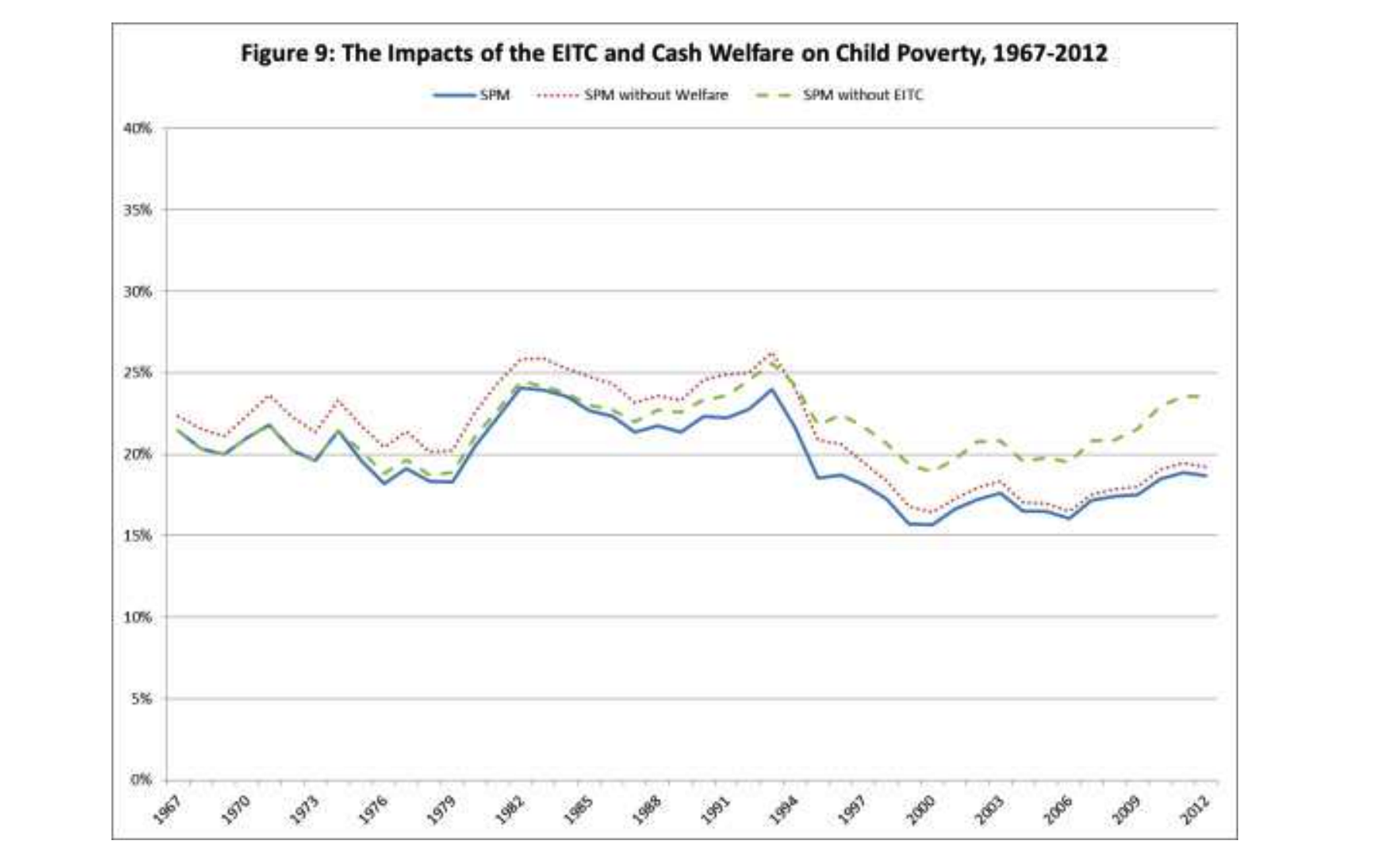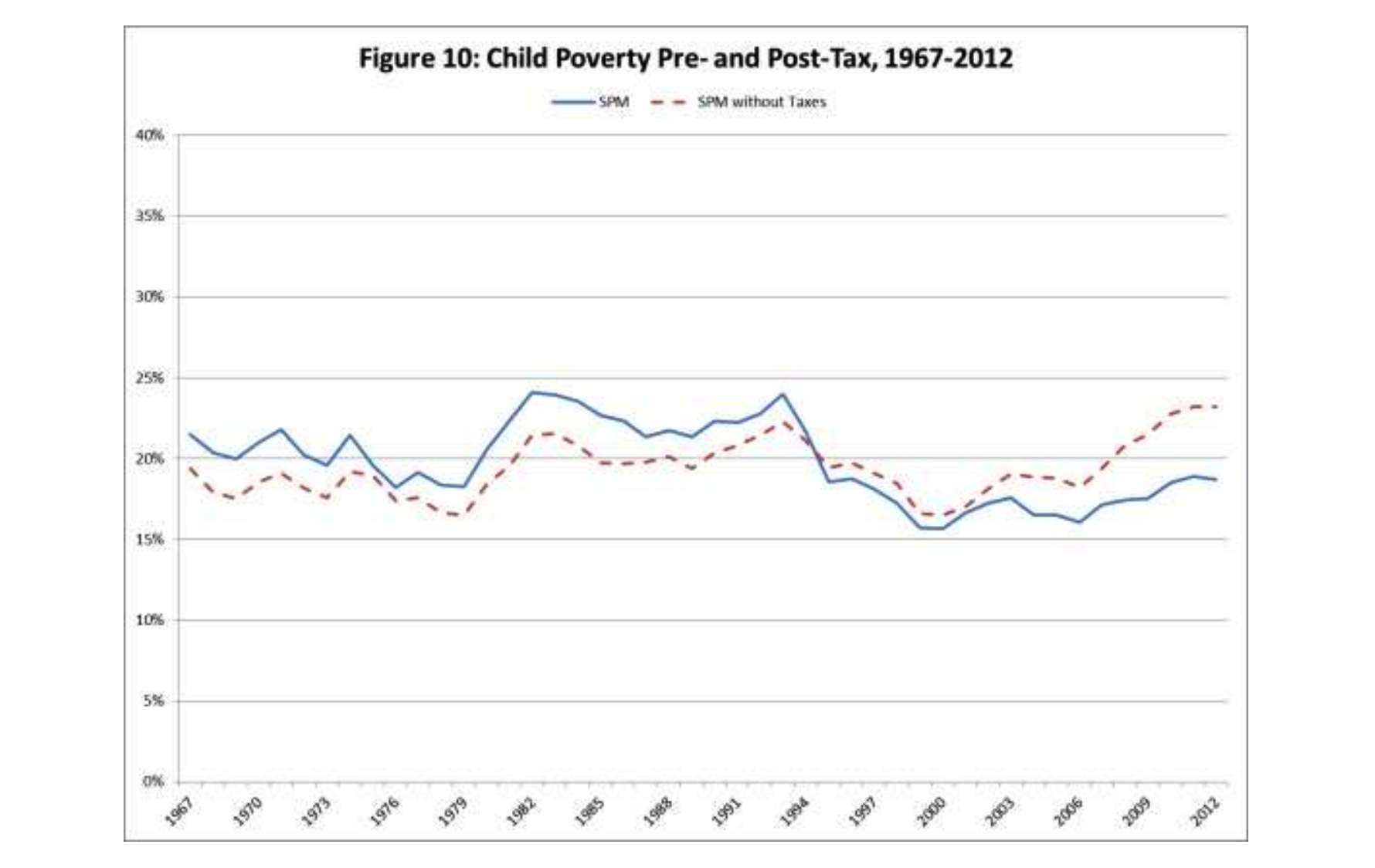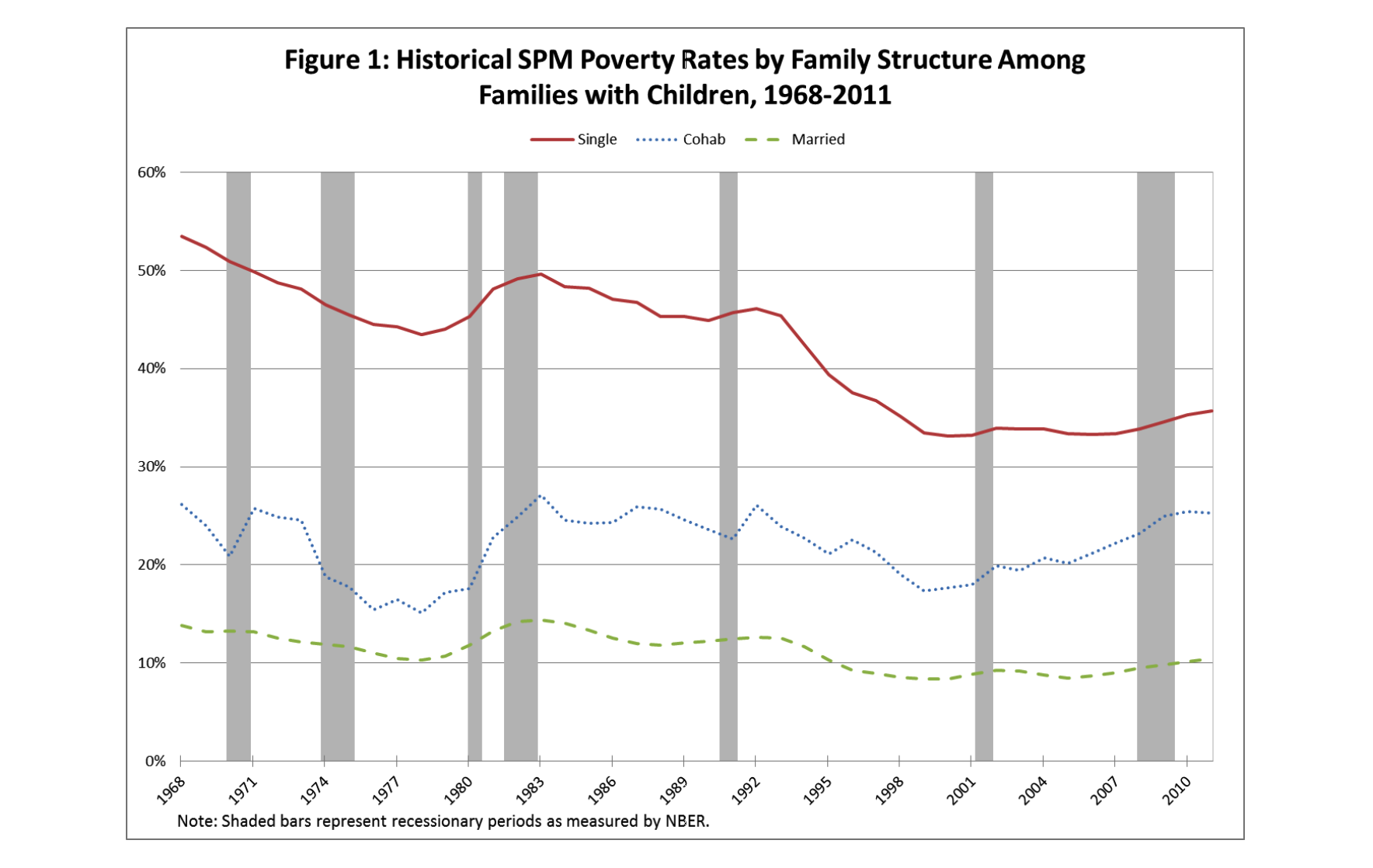Why Paul Ryan's welfare reform is always going to be a dead end
Republicans want welfare recipients to get a job. But what if there aren't any to be had?


A free daily email with the biggest news stories of the day – and the best features from TheWeek.com
You are now subscribed
Your newsletter sign-up was successful
Between Greece, China, and the Iran deal, the international realm has been dominating the economic news cycle. But we might soon be in for some news-making here in America as well: Rep. Paul Ryan, along with a collection of legislators from both parties, may soon roll out the biggest welfare reform proposal since the 1990s.
The Wisconsin Republican, who also chairs the House Ways and Means Committee, has been hinting at such a move, especially with an early 2014 report on poverty that recommended radically retooling much of the social safety net.
Reporting in National Journal last week, Dylan Scott revealed that Ryan is working to overhaul Temporary Assistance to Needy Families (TANF), the specific program traditionally known as "welfare."
The Week
Escape your echo chamber. Get the facts behind the news, plus analysis from multiple perspectives.

Sign up for The Week's Free Newsletters
From our morning news briefing to a weekly Good News Newsletter, get the best of The Week delivered directly to your inbox.
From our morning news briefing to a weekly Good News Newsletter, get the best of The Week delivered directly to your inbox.
It's already block-granted to the states, and comes with work requirements: Half of a state’s beneficiary families must be working at least 30 hours a week, and 90 percent of the two-parent families must work at least 35 hours a week. Ryan's additions would allow states to count more forms of training and education towards TANF's work requirements, and it would cut certain loopholes states can use to inflate the number of people meeting work requirements. It would also impose new accountability measures on states — if they don’t meet them, they could lose portions of their TANF funding.
"If something close to this gets enacted, this would be the biggest redesign of TANF in its history," Liz Schott, a senior fellow at the left-leaning Center on Budget and Policy Priorities, told Scott. The proposal incorporates both Democratic ideas (the expanded training) and Republican ones (cutting the loopholes), and would hold the topline budget spending on TANF constant.
So in that sense the proposal can arguably be seen as a good faith effort by Ryan to retool the program in a bipartisan fashion. The real problem, rather, lies with the premises behind how and why the retooling is occurring — as well as with the previous retooling. Block grants were introduced into welfare, and work requirements were tightened, in a 1996 reform that went effective in 1997 — transforming the program into TANF. Republicans and conservatives like Ryan regularly hail that transformation as singular policy success, but the data tells a different story.
First off, the degree to which TANF benefits reduce childhood poverty fell significantly after the reform. (Childhood poverty is worth considering because welfare has traditionally been aimed at poor families with kids.) That's probably because the block-granting allowed all states — but mainly the red ones — to misuse the funds.
A free daily email with the biggest news stories of the day – and the best features from TheWeek.com

(Graph courtesy of Waging War On Poverty: Historical Trends in Poverty Using the Supplemental Poverty Measure)
Now maybe the benefits stopped reducing poverty because the beneficiaries got off the welfare rolls and into work. Except child poverty stopped declining and then rose after 1997, even when other aid programs for the poor — like the Earned Income Tax Credit (EITC) in the graph above — were expanded.

(Graph courtesy of Waging War On Poverty: Historical Trends in Poverty Using the Supplemental Poverty Measure)
Indeed, poverty rates as a whole either stopped declining after 1997, or slowly began rising again, depending on how you do the measure. Poverty rates stopped declining for single- and married-parent families with children, and rose for cohabiting families with children.

(Graph courtesy of The Changing Face of Poverty in the US: The Influence of Family Structure, Employment Patterns, and the Safety Net from 1967-2012)
So what happened? Well, if you're going to ask people to get jobs, there actually need to be jobs out there for them to get. But after the short economic boom and rush of full employment America enjoyed in the late 1990s, the supply of jobs was driven down by the 2001 recession, and then into a crater by the 2008 collapse. Seven years after the Great Recession, there are still 1.7 Americans looking for work for every job opening in the economy. Needless to say, that's the best it’s been in those last seven years by a long shot.
Most conservative economic thinking operates on the notion that jobs are just magically "out there," and that what prevents people from getting them is either bad government incentives, cultural breakdown, or personal failings. But there is a supply of jobs, and quite often in the last few decades there simply haven’t been enough to go around.
Policymakers like Paul Ryan can push that supply up or down. Government spending is part of this, because if you give poor people more money, they will spend it in their communities, and businesses can turn that increased demand into new jobs. So when you cut programs like TANF, you perversely make it harder for people on the program to find the jobs they're required to have. So it's not surprising that a European country like Denmark, which has strict work requirements for their welfare programs but also a very high labor force participation, also spends much more on welfare benefits than America.
The other part is monetary policy, which is hugely important for full employment: Overly tight money can choke off economic growth leaving workers high and dry.
You know how this ends: Paul Ryan — along with most of the ideological movement and political party he represents — is a huge fan of cutting government spending, and of keeping monetary policy as tight as possible, all the time.
"We need to do another round of welfare reform, not as an exercise to save money, but as an exercise to save lives and to get people from welfare to work and realize opportunity and upward mobility," Ryan said earlier this year. "There are too many people who don't think the American idea is ever there for them again."
The irony is they think that because they're living in a world that Paul Ryan and those like him, intentionally or not, worked very hard to create.
Jeff Spross was the economics and business correspondent at TheWeek.com. He was previously a reporter at ThinkProgress.
-
 Quiz of The Week: 14 – 20 February
Quiz of The Week: 14 – 20 FebruaryQuiz Have you been paying attention to The Week’s news?
-
 The Week Unwrapped: Do the Freemasons have too much sway in the police force?
The Week Unwrapped: Do the Freemasons have too much sway in the police force?Podcast Plus, what does the growing popularity of prediction markets mean for the future? And why are UK film and TV workers struggling?
-
 Properties of the week: pretty thatched cottages
Properties of the week: pretty thatched cottagesThe Week Recommends Featuring homes in West Sussex, Dorset and Suffolk
-
 The billionaires’ wealth tax: a catastrophe for California?
The billionaires’ wealth tax: a catastrophe for California?Talking Point Peter Thiel and Larry Page preparing to change state residency
-
 Bari Weiss’ ‘60 Minutes’ scandal is about more than one report
Bari Weiss’ ‘60 Minutes’ scandal is about more than one reportIN THE SPOTLIGHT By blocking an approved segment on a controversial prison holding US deportees in El Salvador, the editor-in-chief of CBS News has become the main story
-
 Has Zohran Mamdani shown the Democrats how to win again?
Has Zohran Mamdani shown the Democrats how to win again?Today’s Big Question New York City mayoral election touted as victory for left-wing populists but moderate centrist wins elsewhere present more complex path for Democratic Party
-
 Millions turn out for anti-Trump ‘No Kings’ rallies
Millions turn out for anti-Trump ‘No Kings’ ralliesSpeed Read An estimated 7 million people participated, 2 million more than at the first ‘No Kings’ protest in June
-
 Ghislaine Maxwell: angling for a Trump pardon
Ghislaine Maxwell: angling for a Trump pardonTalking Point Convicted sex trafficker's testimony could shed new light on president's links to Jeffrey Epstein
-
 The last words and final moments of 40 presidents
The last words and final moments of 40 presidentsThe Explainer Some are eloquent quotes worthy of the holders of the highest office in the nation, and others... aren't
-
 The JFK files: the truth at last?
The JFK files: the truth at last?In The Spotlight More than 64,000 previously classified documents relating the 1963 assassination of John F. Kennedy have been released by the Trump administration
-
 'Seriously, not literally': how should the world take Donald Trump?
'Seriously, not literally': how should the world take Donald Trump?Today's big question White House rhetoric and reality look likely to become increasingly blurred
